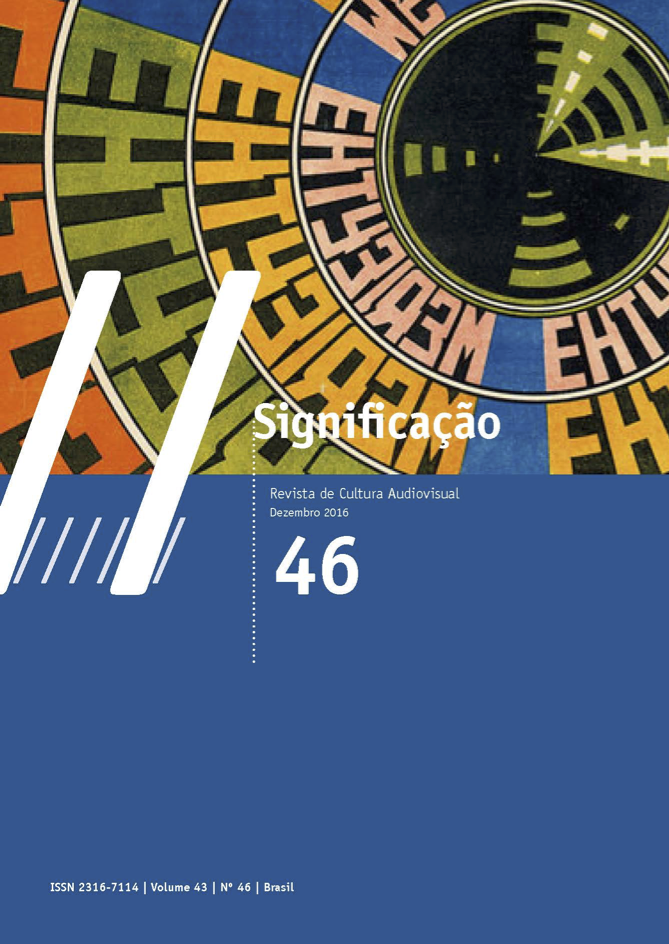Pedagogies of cinema: montage
DOI:
https://doi.org/10.11606/issn.2316-7114.sig.2016.115323Keywords:
film, montage, education, pedagogyAbstract
This article aims to deepen the path of the French critic Serge Daney that cinema invents a pedagogy. This intuition, developed in the 1970s, is taken up by many thinkers in Europe and Brazil. This pedagogy does not treat the cinema as a privileged transmitter, but as an inventor of forms of engaging the spectator on sensitive sharing of ideas, concepts, perceptions of the world and knowledge. This paper goes through the history of cinema, focusing on filmmakers and theorists that enable us to draw a notion of pedagogy based on film montage.
Downloads
References
AUMONT, J. Montage Eisenstein. Paris: Images Modernes, 2005.
BAZIN, A. O que é o cinema? São Paulo: Brasiliense, 1991.
BERGALA, A. A hipótese-cinema: pequeno tratado de transmissão do cinema dentro e fora da escola. Rio de Janeiro: Booklink, Cinead-Lise-FE/UFRJ. 2008.
DELEUZE, G. A imagem-tempo. São Paulo: Brasiliense, 2005.
__________. A imagem-movimento. São Paulo: Brasiliense, 1983.
__________. Cinéma/Image-mouvement. Aula 19.01.1982 – Disponível em http://www2.univ-paris8.fr/deleuze/rubrique.php3?id_rubrique=8. Acesso em: 2. dez. 2016.
DANEY, S. A rampa. São Paulo: Cosac Naify, 2007.
___________. La recrudescence des vols des sacs à mains: cinéma, télévision et infor-mation. Paris: Aléas, 1991.
DIDI-HUBERMAN, G. Passés cités par JLG : l'œil de l’histoire #5. Paris: Éditions de Minuit, 2014.
DUARTE, R. Cinema & Educação: refletindo sobre cinema e educação. Coleção Temas & Educação. Belo Horizonte: Autêntica, 2002.
EISENSTEIN, S. A forma do Filme. Rio de Janeiro: Zahar. 1990.
___________ . O sentido do Filme. Rio de Janeiro: Zahar. 1990.
FAUCON, T. Penser et expérimenter le montage. Paris: Presses Sorbonne Nouvelle, 2009.
_________. Théorie du montage: énergies, forces et fluides. Paris: Armand Colin, 2013.
FRESQUET, A. Cinema e educação: reflexões e experiências com professores e estudan-tes de educação básica, dentro e “fora” da escola. Belo Horizonte: Autêntica, 2013.
FREIRE, P. Pedagogia da Autonomia: saberes necessários à prática educativa. São Pau-lo: Paz e Terra, 1996.
________. Pedagogia do Oprimido. Rio de Janeiro: Paz e Terra, 1987.
GODARD, J.-L. Jean-Luc Godard par Jean-Luc Godard. Tome 2: 1984-1998. ed. Alain Bergala. Paris: Cahiers du Cinéma, 1998.
________. “Montage mon beau souci”. Cahiers du Cinéma. Paris, n. 65, 1956.
LEANDRO, A. “Da imagem pedagógica à pedagogia da imagem”. Comunicação & Edu-cação, v. 7, n. 21, 2007.
LEWIS, T. E. The aesthetics of education: theather, curiosity, and politics in the work of Jacques Rancière and Paulo Freire. New York: Bloomsbury, 2012.
METZ, C. “Image e pedagogie”. Communications, n. 1, v. 15, p. 162-168, 1970.
RANCIÈRE, J. Aiesthésis: scène du régime esthétique de l’art. Paris: Galilée, 2011. __________. O mestre ignorante: cinco lições sobre a emancipação intelectual. Belo Ho-rizonte: Autêntica, 2005.
_________. Le destin des images. Paris: La Fabrique, 2003.
ROPARS-WUILLEUMIER, M. Le temps d'une pensée: du montage à l'esthétique pluri-elle. Presses Universitaires Vincennes, 2009.
SALLES GOMES, P. Encontros (Adilson Mendes org.) Rio de Janeiro: Azougue Edito-rial, 2014.
SIMONDON, G. “Réflexions préalables à une refonte de l’enseignement”. In. Sur la Te-chnique, 1953-1983. Paris: PUF, 2014.
VERTOV, D. Extrato do Abc dos Kinoks (1929). In: XAVIER, I. (org.) A experiência do cinema. Rio de Janeiro: Graal, 1991, p. 263-266.
WHITEHEAD, A. Aims of education. Simon and Schuster, 1967.
Downloads
Published
Issue
Section
License
Copyright (c) 2016 Cezar Migliorin, Elianne Ivo Barroso

This work is licensed under a Creative Commons Attribution-NonCommercial 4.0 International License.
Authors who publish in this journal must agree with the following terms:
- Authors keep their copyrights and grant the journal first time publication rights, having their articles simultaneously licensed under the Creative Commons Attribution License, which allows sharing texts with authorship recognition and first publication on this journal for non-commercial purposes.
- Authors are allowed to make additional contracts, for a non-exclusive distribution of the article’s version published on this journal (e.g.: publishing in institutional repositories of articles or as a book chapter), with authorship recognition and first publication on this journal.
















